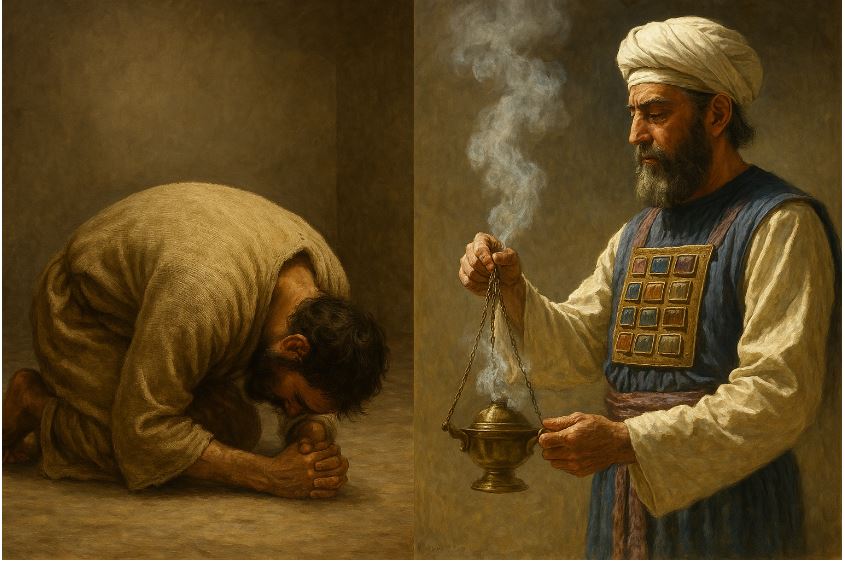
“Go, gather together all the Jews who are in Susa, and fast for me. Do not eat or drink for three days, night or day. I and my attendants will fast as you do. When this is done, I will go to the king, even though it is against the law. And if I perish, I perish.” Esther 4:15-16
If we want to experience God’s power, presence, and breakthrough in our lives, we must approach Him with honesty, humility, and repentance. Fasting is not just a ritual—it’s a spiritual tool to prioritise the spiritual over the physical, to seek God with sincerity, and to allow Him to cleanse us of sin so that heaven can move on our behalf. But it must be the fast God chooses, marked by genuine humility and a hunger for Him—not empty motions or fake spirituality.
In Esther 4:15-16, Queen Esther faced a life-threatening crisis. The Jewish people were under a decree of annihilation, and the situation seemed hopeless. In that desperate moment, Esther knew that human intervention would not be enough. She understood that only God could change the course of events. So, with courage and faith, she called for a fast, urging the people of Israel to join her in humbling themselves before God. She instructed them to fast for three days and nights, asking God for mercy and intervention. The story ended with a miraculous turn of events, saving the Jews from destruction.
Fasting is a powerful spiritual tool that positions us to receive God’s guidance, intervention, and mercy in the most desperate of circumstances. It is not a ritual, but a means to humble ourselves before God, recognising that we cannot handle life’s challenges on our own. Fasting becomes an earnest plea for God’s help and a declaration that His will must prevail. This power of fasting is also seen in the story of Nineveh. When Jonah warned the city of impending judgment, the entire population fasted and repented, turning away from their evil ways. God, in His mercy, spared the city. Fasting, coupled with repentance, has the potential to bring about God’s mercy and change the course of history.
There are other examples in the bible; Moses fasted for 40 days on Mount Sinai, receiving God’s law and instructions for the people of Israel. This fast was one of deep consecration, as Moses sought God with all his heart. Similarly, we can fast when we need clarity and direction from God, asking Him to reveal His will for our lives. David also fasted in a moment of deep repentance, acknowledging his sin and seeking God’s mercy after his transgression with Bathsheba. His fast was an act of contrition, a surrender of his heart to God, and an appeal for restoration. Fasting, in this context, becomes a way for us to approach God with a repentant heart, recognising that we need His mercy and grace.
In the New Testament, Jesus Himself fasted for 40 days in the wilderness, preparing for His ministry. This fast strengthened Him spiritually and enabled Him to resist temptation. It was not only a time of seeking God’s will but a preparation for the work ahead, showing us that fasting empowers us to overcome challenges and align with God’s purposes. The early church also modelled corporate fasting. In Acts 13, the church at Antioch fasted and prayed before sending out Barnabas and Saul. This collective fast was a time of seeking God’s will and confirming His calling. Corporate fasting helps to bring unity and clarity, especially when key decisions are being made.
Fasting is about humbling ourselves before God, recognising that we need His help. It is not a way to manipulate God but to surrender to His will, allowing Him to work in our lives. In James 4:10, we are reminded, “Humble yourselves before the Lord, and He will lift you up.” True fasting is about the condition of the heart, not only the external actions.
We must remember that it is not a ritual to be performed but a means to draw closer to God, seek His will, and experience His intervention. Whether in times of crisis, seeking guidance, or repenting of sin, fasting positions us to hear from God and receive His mercy.
Father, I come before you today in humility, recognising my dependence on you. I seek your guidance and your mercy, knowing that without you, I can do nothing. Teach me to fast with a heart of surrender, that I may draw near to you and receive your will for my life. May your presence guide me, and may I experience your intervention in every circumstance. In Jesus’ name, Amen.